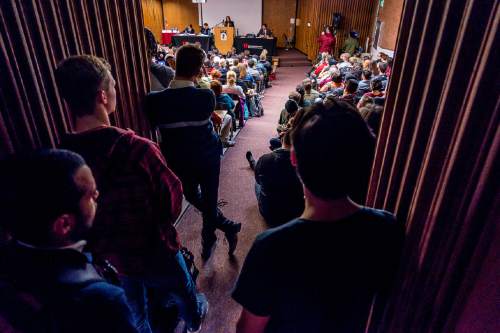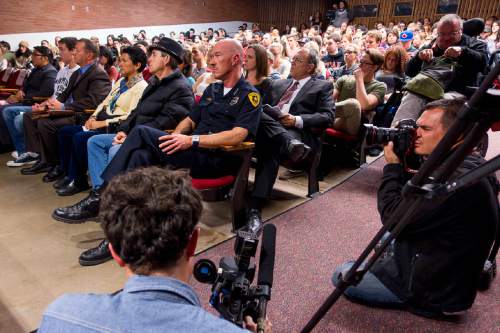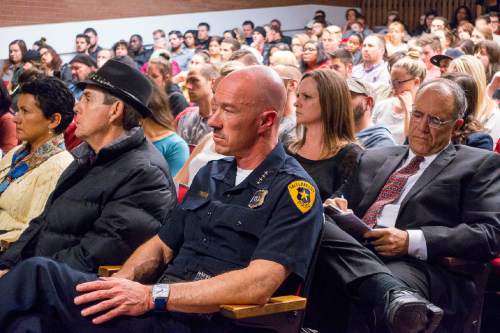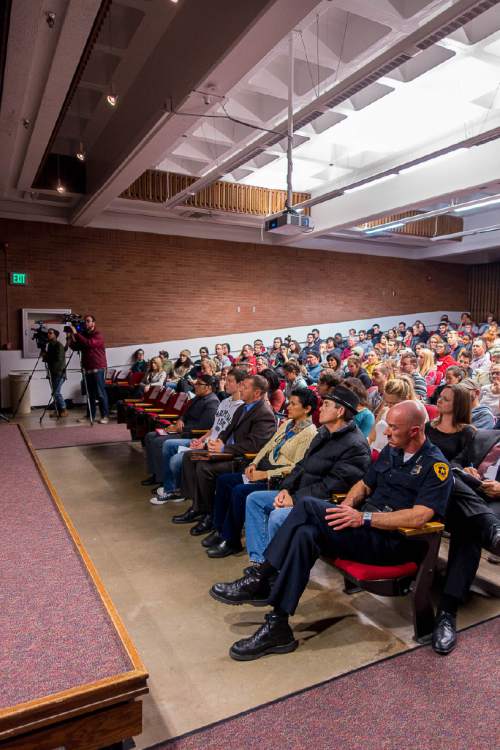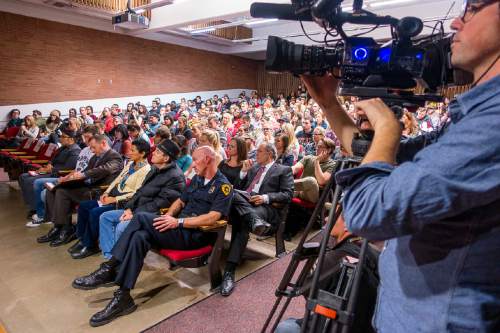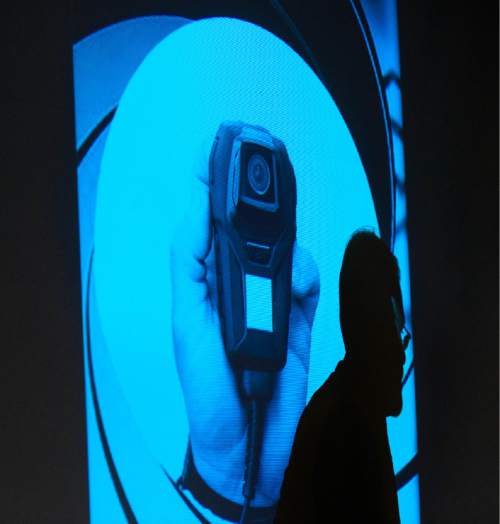This is an archived article that was published on sltrib.com in 2014, and information in the article may be outdated. It is provided only for personal research purposes and may not be reprinted.
Among the many points of dispute surrounding use of force by police, body cameras emerged as the one thing all sides could agree on at a panel discussion Wednesday night featuring civil rights advocates, Salt Lake City's police chief and a Utah state legislator.
"I don't think anybody here opposes the cameras," said Rep. Paul Ray, R-Clearfield, at a debate on whether body cameras should be required for all Utah officers. "It's about how they roll them out. The devil's in the details."
Among the details needing more examination is the privacy of people captured on police footage, especially in nonpublic places such as homes, said Anna Brower, policy advocate for the ACLU of Utah. Although she acknowledged that police always have had access to people's homes and have been able to report their firsthand observations, she said "there is a very different kind of invasion of privacy with real-time video."
"It's like the difference between describing your boyfriend naked to somebody and showing a picture to somebody," Brower said.
Provisions to protect citizens' and officers' privacy are critical, Brower said.
Ray and Salt Lake City police Chief Chris Burbank both voiced reservations against a statewide mandate, especially without funding for cameras and means to store the videos — and Ray, who sits on the House Criminal Justice Committee, said any such mandate is highly unlikely to be proposed in the coming legislative session. But Burbank said cameras help to bring accountability to police departments.
"Cameras are not going to prevent officer involved shootings, but they are certainly going to do a good job of … creating trust," he said.
Civil rights attorney Randall Edwards disagreed, saying that being filmed could prevent hasty or unnecessary uses of force.
"A police officer is not going to be hassling you, not going to be pulling a gun on you without any reason for it because that is going to be recorded," said Edwards, who represented police against citizens' civil rights complaints as a municipal attorney in Salt Lake City and Reno, Nev., before opening a private practice. "As an officer looks at the ladder of escalating force, he will be very circumspect about pulling out his gun if he knows he will have to be accountable."
Edwards said cultural factors unique to Utah make police body cameras especially critical here.
"When you walk into court and you're representing an authority figure — a police officer, a doctor, or a lawyer, you already have 90 percent of your case won. In this top-down, hierarchical society, especially with the influence of the LDS Church, people want to side with the authorities," Edwards said.
But, he added, "If people are shown that trust has been abused, … in this society, that's unforgivable.
"The way we are going to keep officers from abusing our trust … is some accountability. When officers are required to be responsible to someone, … things change. That is why we have to have [body cameras]."
Burbank said the trust problems between police and civilians in the wake of Michael Brown's shooting in Ferguson, Mo., go beyond body cameras.
"Ferguson was not centered around … the fact that the officer had a controversial shooting. … What took place in Ferguson was the years prior to that — the lack of community involvement that took place, the confrontation that had escalated to the point where … people feel it necessary to stand up in protest.
"Relationships are not built in the middle of a riot or in crisis," Burbank continued. "It didn't matter how many basketball nets you hung up, how many books you passed out, how nice you were in the donut shop … if you show up in riot gear."


